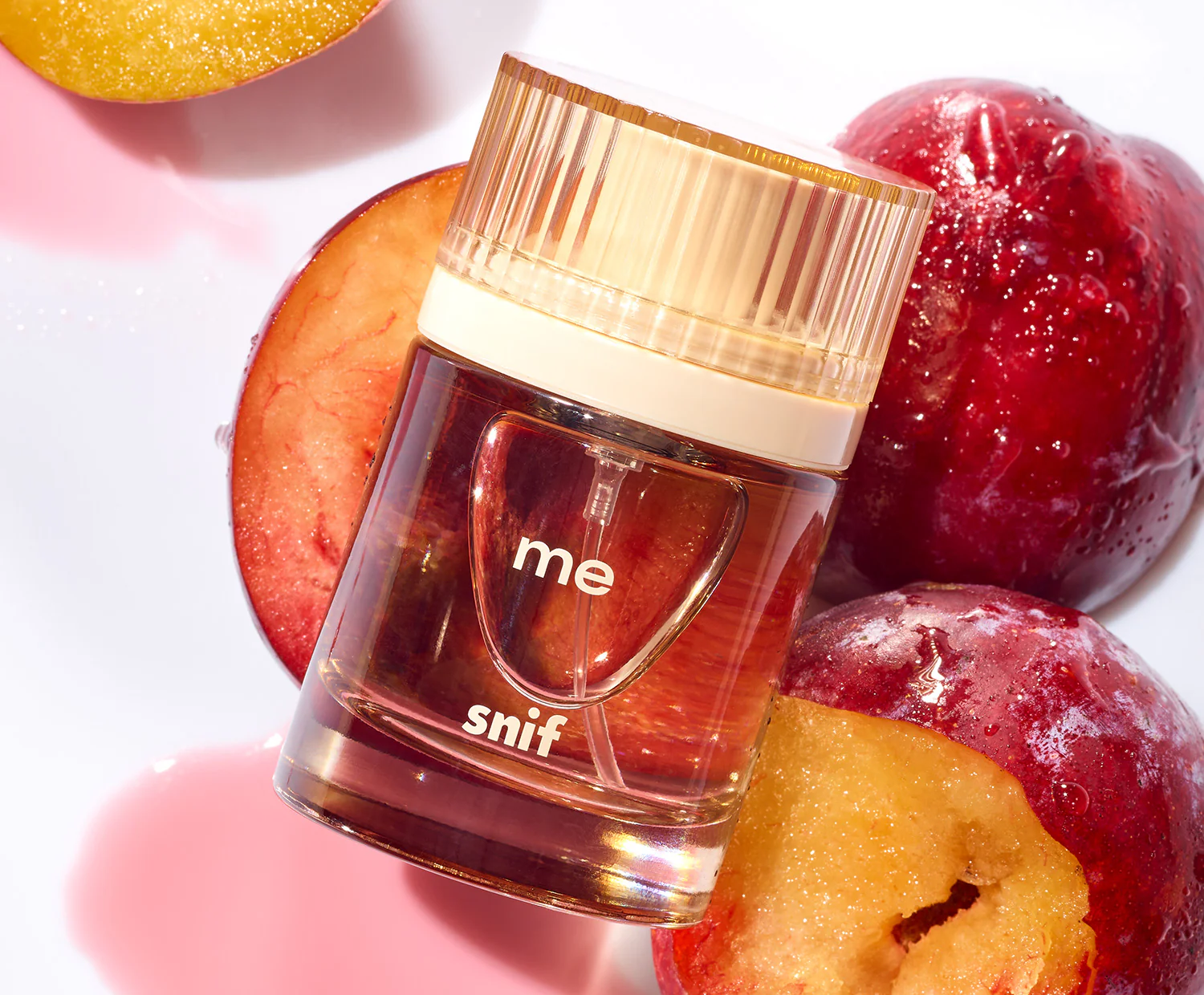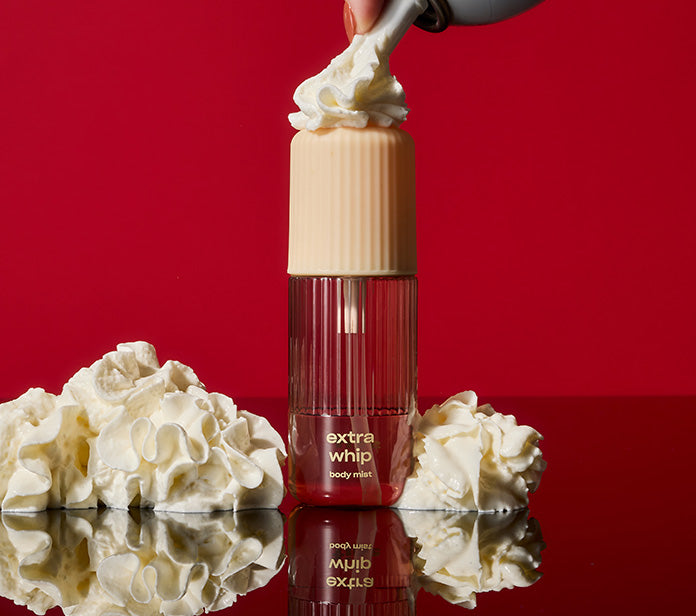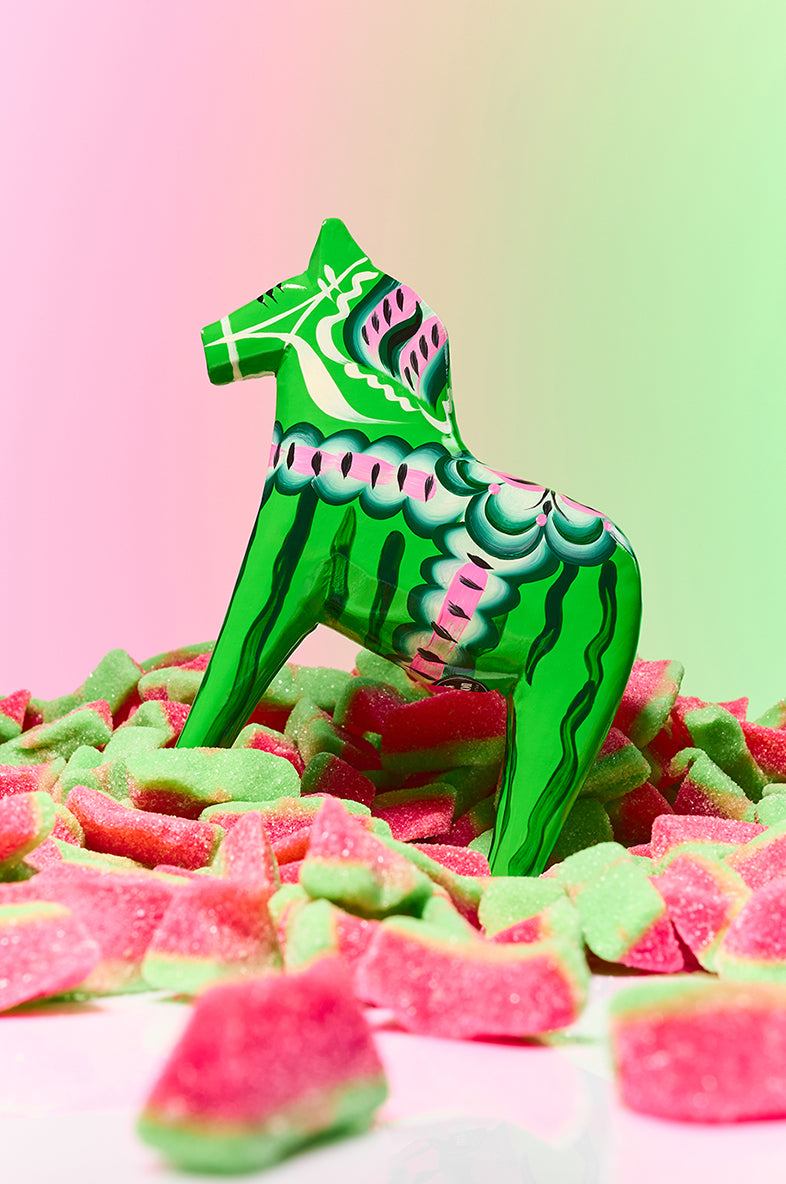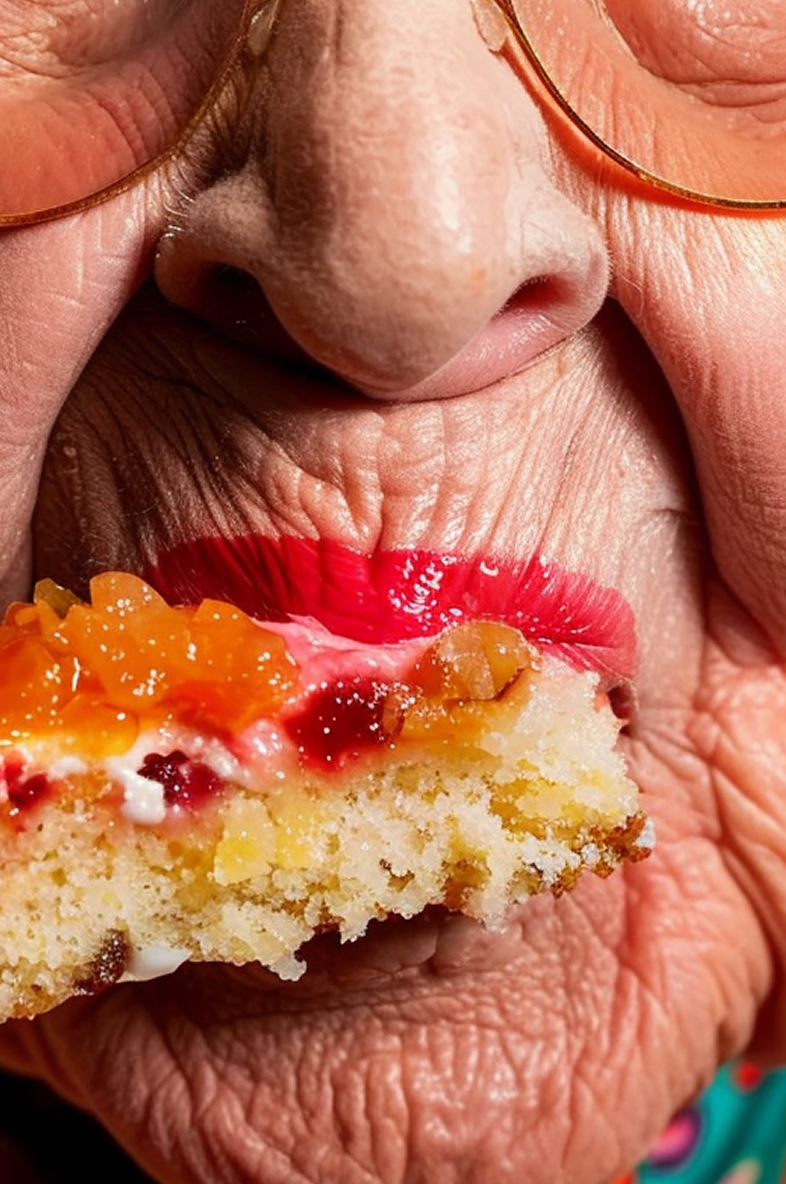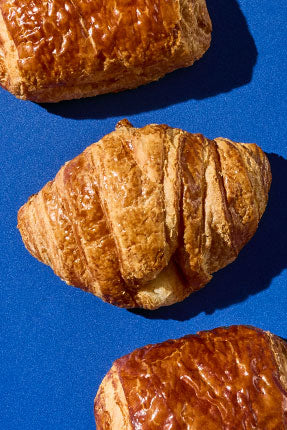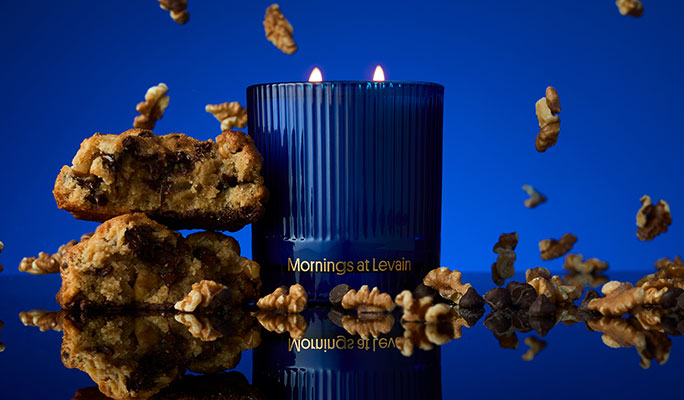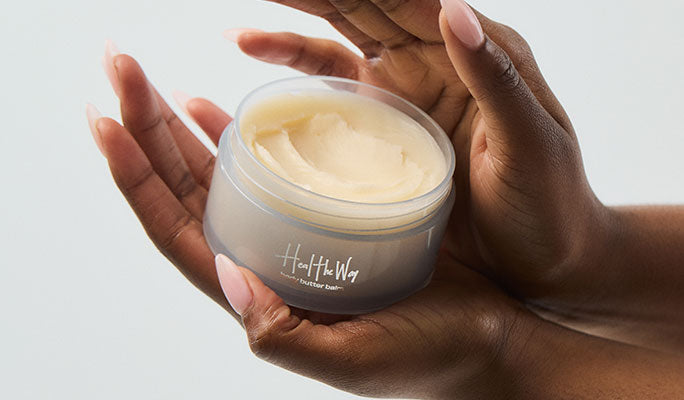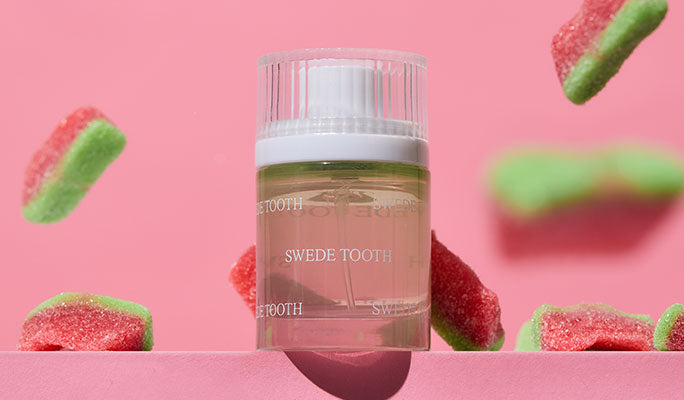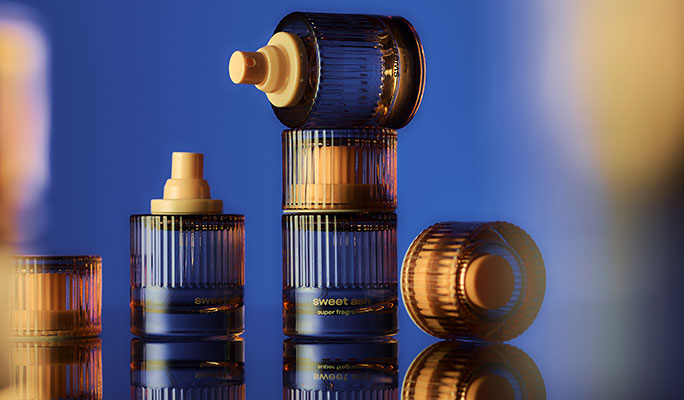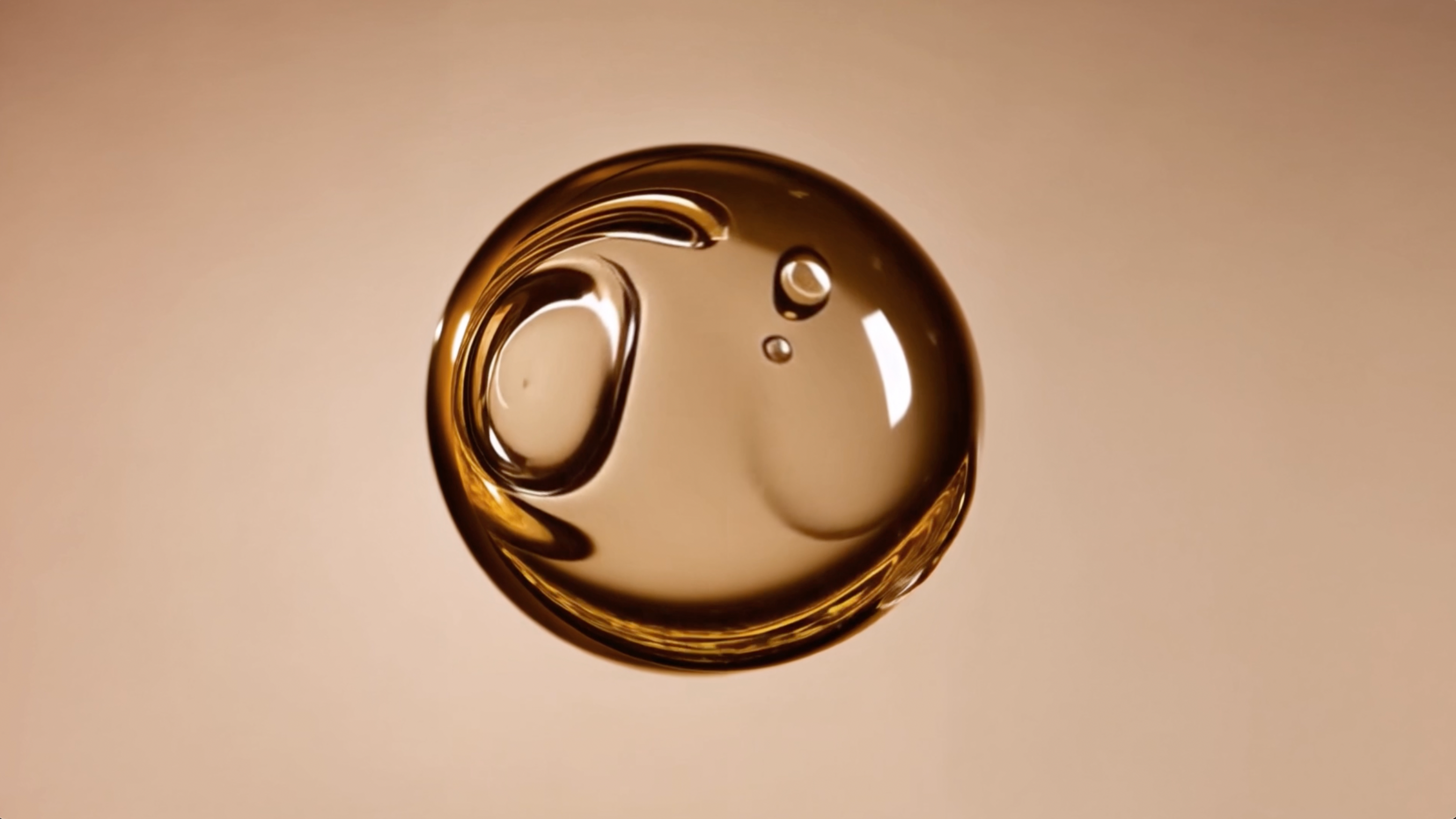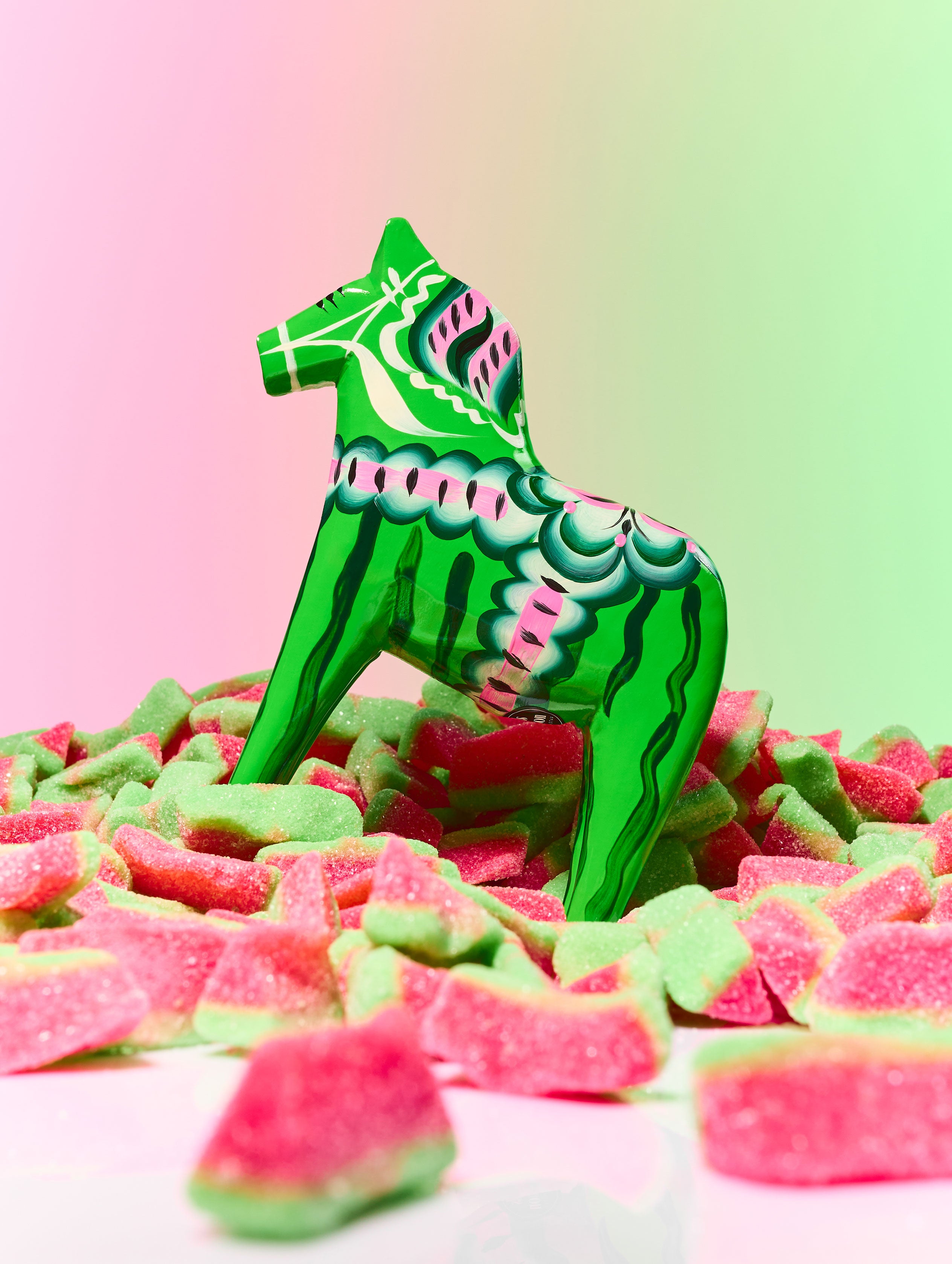Patchouli is an undeniably bold fragrance that people tend to love or hate — and while it‘s often considered a “hippie” fragrance, patchouli is a crucial ingredient in some of the most luxurious fragrances out there.
Along with the history of how patchouli has been used, we’ll also dive into what exactly this fragrance smells like, as well as which scents it pairs well with. Taking all of this into consideration, you’ll be ready to decide whether or not to make patchouli one of your signature scents this year.
what is patchouli?
Knowing more about what patchouli is and where it comes from is the first step in truly understanding this distinctive fragrance. In this section, we’ll break down what the patchouli plant is, how its fragrance has been used, and the history of patchouli.
plant
Patchouli essential oil comes from the patchouli plant, a tall, flowering plant that is native to Southeast Asia. The name patchouli comes from two Tamil words, a language spoken in southern India. The Tamil word “patchai” means green, and the word “ellai” means leaf.
Patchouli is likely named after its leaves, which are large and have a furry texture. The scent we associate with patchouli comes from these leaves — through a process of steam distillation, oils are extracted from the patchouli leaves, which are then used for perfumes and colognes. Of all plant-derived scents, patchouli is one of the strongest, which is why you’ll often find it balanced very carefully in scents.
The patchouli plant itself can grow up to three feet tall and features small purple, white flowers that grow out of its spikes. Patchouli technically belongs to the mint family, but it definitely doesn’t smell like mint… in fact, the smell of patchouli leads many people to believe that it comes from a tree or root rather than a green, leafy plant.
history
Originally found in India, Indonesia, Malaysia, and the Philippines, patchouli came West along the silk routes that brought fabrics, spices, and various products from Asia to other parts of the world. It’s thought that patchouli was packed along with silk and other precious commodities to protect them from insects like moths because it is an excellent insect repellent.
Fast-forwarding many centuries, patchouli rose to fame in the counterculture revolution of the ‘60s and ‘70s. Hippies often put patchouli oil directly on their skin, which is why nowadays it is still associated with the psychedelic colors and free-loving spirit of that time.
Types of Patchouli: From Indonesian to West Indian
Although the smell of patchouli is so distinct, there are actually a few different varieties of this iconic smell that you’ll want to be aware of.
Indonesian patchouli is generally considered the most popular variety and is loved by perfumers world-wide because it has such a strong smell. This type of patchouli is very earthy, green, and woody, with warm notes underneath.
Another type of patchouli that you may come across is West Indian patchouli. This variety of patchouli is sweeter and almost balsamic.
There are also two different ways that patchouli oil is produced, which greatly impacts its smell. Aged patchouli oil has a softer, leathery smell that tends to be richer and more complex. If you hear patchouli oil described as smooth, it’s likely that the oil being described was aged.
Freshly distilled patchouli oil has a sharper, more intense smell. It tends to be more earthy and woody and can even have a slightly herbaceous edge.
what does patchouli smell like?
Now that you know everything you need to know about where patchouli comes from, it’s time to answer the important question: what does the patchouli fragrance actually smell like?
Here’s a closer look:
musky
Patchouli is a musky fragrance first and foremost. The musk smell has a warm scent that’s woody, slightly powdery, and often associated with vetiver.
Subtle yet rich, the musky scent of patchouli is the main reason why people often mistakenly think patchouli is a part of the woody fragrance family, along with sandalwood, cedarwood, and pine.
earthy
Patchouli is also known for its intensely earthy smell. For this reason, patchouli is often associated with health food stores and incense. The earthiness of patchouli also makes it a darker, deeper scent as compared to a bright, fresh fragrance like bergamot.
sweet
Along with its muskiness and earthiness, patchouli is also a little bit sweet and a little bit spicy. Fans of patchouli tend to love it because of its earthy, sweet qualities — this combination isn’t common, and it’s part of what makes patchouli so distinctive.
resinous
Another word often used to describe patchouli is “resinous.” Resinous essentially means that a fragrance features the smell of natural resins derived from trees and plants.
To say patchouli is resinous is basically another way to say that it has a rich, deep smell that is slightly sweet and features scents of vanilla and cistus labdanum.
What Makes Patchouli Smell Like Patchouli?
There are four main components of the patchouli smell: patchoulol, bulnesene, seychellene, and norpatchoulenol. If those names sound intimidatingly scientific, don’t worry, we’re here to break them down.
Patchoulol is the star of the show in patchouli. It gives this distinctive fragrance ingredient its woody-musky smell and is considered the backbone of the scent. The spicy, resinous lift that you get when smelling patchouli is there thanks to the power combo of bulnesene and seychellene.
Last but certainly not least, norpatchoulenol adds powdery-floral edges that soften and round out the smell of patchouli.
How is patchouli extracted?
Now that you know about the history of patchouli, the different types, and what they smell like, it’s time to dive into the process that turns that beautiful flowering plant into the oil that ends up in your favorite fragrances.
There are two main ways to extract patchouli oil — steam and solvent distillation. This section will take a close look at both.
Steam vs. solvent distillation
Steam distillation is the more common method for extractive patchouli oil because it tends to be less expensive.
During the process of steam distillation patchouli leaves, either fresh or dry, are exposed to incredibly hot steam. The result of this exposure is the vaporization of oils such as patchoulol, the aforementioned star of patchouli oil.
From there, the steam and oils are cooled and condensed. This process separates out the oil, which can then be used for fragrances and aromatherapy (more on this in the next section).
Although steam distillation is the more commonly used extraction method, there are a few downsides to it. Given that the leaves have to be exposed to hot steam, sometimes thermal degradation of the oil can occur. Simply put, this means that the oil that results from steam distillation may be less concentrated, and its aroma can be slightly altered by the process.
The other method of extraction is solvent extraction. In this method solvents such as supercritical CO2 or hexane are used to dissolve the oil from the plant. Once this is done, the solvent is then evaporated off, leaving just the patchouli oil behind.
This method is known for yielding higher-quality oil because none of the volatile compounds are sacrificed during the process. However, the solvents and equipment needed for this type of extraction are much more expensive.
For this reason, perfumers may opt for steam distillation as the more practical extraction method of the two. However, if they’re looking for the absolute highest quality oil out there, they’ll rely on solvent distillation.
what are the benefits of patchouli in aromatherapy?
There are several benefits patchouli can offer when used in aromatherapy. Patchouli is coveted for its balancing properties. The distinct scent may help promote the release of dopamine and serotonin in your body, working to help you feel cool, calm, and collected.
When things feel chaotic and disjointed, patchouli might help lead your mind and body toward feelings of harmony and stability.
Another benefit of patchouli is that it’s known to bring about a vibe of love and romance. The next time you’re having a romantic night with your significant other, you just might be able to use the smell of patchouli to help set the mood.
what scents pair well with patchouli?
|
Note Family |
Why It Works |
|
Citrus |
Bergamot: Brightens the earthiness |
|
Florals |
Jasmine: Lends a sweet, indolic lift |
|
Woods |
Sandalwood: Reinforces the creamy-woody heart |
|
Spices |
Cinnamon: Injects warmth and subtle heat |
|
Gourmand |
Vanilla or Tonka: Softens the edge with sweetness |
Given that patchouli has a strong, bold fragrance, it’s often used as a base note in scents (which means it’s added to fragrances to give them a richer, deeper smell that lasts longer). With this in mind, here are a few scents that pair well with patchouli.
vanilla
The sweet scent of patchouli pairs perfectly with the delicious sweetness of vanilla. When combined, these two are a comforting and cozy duo.
tonka
Tonka, or tonka bean, is a sweet, creamy fragrance that’s a bit like a nuttier version of vanilla. Sometimes compared to a sweet almond, tonka mixes with patchouli to make a nutty, earthy fragrance that will keep you grounded even in the most chaotic moments.
bergamot
Although you might not know it, you’ve probably caught a whiff of bergamot if you’ve ever had a cup of Earl Grey tea.
This bright, citrus fruit gives Earl Grey its distinct taste, and pairs well with patchouli. When paired with patchouli, it balances out the rich muskiness of patchouli and gives it a fresh edge.
If you’re looking for a sweet fragrance that combines patchouli with all of the scents we’ll discuss in this section, look no further than Sweet Ash.
Sweet Ash features patchouli, vanilla, tona, bergamot, juniper, vanilla bean, and white moss to make for a subtle, irresistible smell that will soon become a staple in your scent repertoire. Its down-to-earth feel means that this versatile fragrance can seamlessly transition with you from day to night.
Patchouli vs. vetiver: How do they compare?
One scent comparison that you’ll often hear made is that patchouli and vetiver smell alike. Although these two fragrances have some shared characteristics, that statement isn’t exactly true.
In this section, we’ll break down the similarities and differences between patchouli and vetiver.
In terms of similarities, both are earthy, woody, and musky fragrances. This means that both are evocative of nature and have complex, layered scent profiles. However, there are key differences that set these two apart. Vetiver has undertones of leather and smoke, but it primarily smells like fresh-cut grass.
As you now know, patchouli has a warmer scent thanks to its rich, balsamic undertones. While vetiver can have a citrusy twist depending on the variety used, patchouli has a minty flair that balances out its richness.
Overall, although these two scents are part of the woody fragrance family, several key differences make each distinctive and delightful. Given their similarities, patchouli and vetiver do pair well together.
broaden your horizons
Not to be confused with neroli, another rich, distinct fragrance, patchouli has an earthy, musky smell that comes from the leaves of the patchouli plant. Used in aromatherapy and perfumery for its grounding properties and bold fragrance, patchouli will surely become a part of your signature scent.
At Snif, we believe in broadening your fragrance horizons, and we’re here to help you do it. With fragrance bundles and a try before you buy option, you can kick off the journey to finding your signature scent.
FAQs
Is patchouli a woody note or an earthy note?
Patchouli has a complex scent that contains both woody and earthy elements. That said, if we have to choose, we’d put patchouli in the earthy family given that it’s smell is so reminiscent of wet earth after a rainstorm.
Does patchouli cause headaches?
For some people who are prone to migraines or have specific sensitivities, patchouli can trigger headaches, just like other powerful fragrances.
How long does patchouli last on skin?
Depending on the strength and variety of the essential oil, patchouli can last from three to eight hours on skin. Indonesian patchouli oil tends to last longer, between six to eight hours, whereas West Indian patchouli tends to wear off after four hours.
Sources:
The Silk Road | National Geographic
Comparative repellency of 38 essential oils against mosquito bites | NIH

